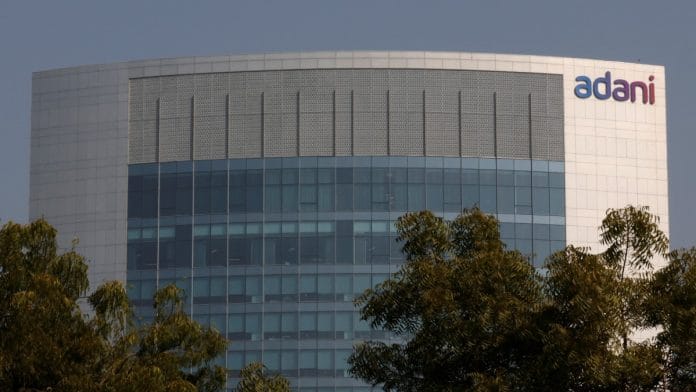New Delhi: The Rohini Court here Thursday set aside its own 6 September order by a different bench that barred four journalists—Ravi Nair, Abir Dasgupta, Ayaskant Das and Ayush Joshi—from publishing or retaining material critical of Adani Enterprises Limited (AEL).
District Judge Ashish Aggarwal, delivering the ruling in open court, held that the sweeping order was unsustainable as it had been passed without giving the journalists an opportunity to be heard.
“I am of the opinion that the sessions court ought to have made an assessment of the content. While articles and posts spanning a substantial period were questioned by the plaintiff, the court did not deem it fit to grant an opportunity of hearing to the defendants. That not having been done, the order is not sustainable,” the judge observed.
The judge further noted that the 6 September injunction, which ordered the removal of the journalists’ content and restrained future reporting on AEL, effectively declared the material defamatory without trial. The appeal by Nair, Dasgupta, Das and Joshi was accordingly allowed, with the gag order quashed as far as they were concerned.
“The effect would be in the event of the court of senior civil judge subsequently finding that the articles are not defamatory, after defendants put forth their defence, it is not feasible that articles which have been removed would then be restored,” the judge said, adding that the trial court should have arrived at a decision after hearing out the defendants.
The gag order had triggered two separate appeals, one by journalist Paranjoy Guha Thakurta, and the other by the four journalists whose injunction was lifted Thursday.
A different bench of the Rohini Court reserved its order on Thakurta’s appeal earlier in the day.
The underlying case arises from a defamation suit filed by Adani Enterprises, which accused multiple journalists and content creators of publishing false and damaging reports that allegedly caused “massive loss to its image, brand equity and credibility” and hurt stakeholder interests, amounting to billions of dollars in losses.
The seven-page order, released Friday, said that unless the journalists are heard, it is not open to the court to infer that they have made “unverified, inaccurate and irresponsible statements”.
“Until this exercise is undertaken and a determination is made, at least prima facie, that the articles are incorrect, defamatory and unverified, the articles cannot be shunted out from the public domain, lest this will fall foul of Article 19(1)(a) of the Constitution of India and will be a serious violation of the freedom of speech and expression,” it read.
It further clarified, “It is only when the author of those articles defies the direction (the gag order) and is hauled up for contempt, that there may possibly be a judicial determination of whether the article indeed was defamatory.”
Leaning towards giving them an opportunity of being heard, the court said, “Such directions expose authors to contempt proceedings without prior adjudication of whether their statements are defamatory, thereby depriving them of an opportunity to defend themselves.”
The judgment added, “It has also been left open to the intermediaries to themselves determine whether the articles pointed out by the plaintiff are indeed defamatory. Such directions would keep a sword hanging over the fate of every person who may make a statement which is critical of, and considered unflattering by, the plaintiff and the said author may remain in a constant perilous state, thereby being dealt a chilling effect.”
This is an updated version of the report.
(Edited by Amrtansh Arora)
Also Read: What Ambani and (AI) Adani said about Modi on his birthday






